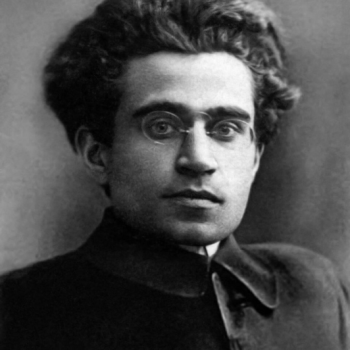 Christians talk a great deal about reaching the culture and influencing the culture. But Christians often take a simplistic view of culture, neglecting the social dynamics of how culture works. So I appreciate my fellow Patheos blogger Dean Abbott, at The Road Home for bringing up the role of social class and social status. I want to say a little bit more about the topic.
Christians talk a great deal about reaching the culture and influencing the culture. But Christians often take a simplistic view of culture, neglecting the social dynamics of how culture works. So I appreciate my fellow Patheos blogger Dean Abbott, at The Road Home for bringing up the role of social class and social status. I want to say a little bit more about the topic.
Mr. Abbot has written a provocative post entitled “Engaging the Culture Doesn’t Work Because Christian Beliefs Are Low Status”. Here is a sample of his argument, followed by my own thoughts:
Evangelicals have failed to reckon with the fact that Christian belief is a mark of low status, and has been so for a long time. This has been the case at least since the Scopes trial and the unflattering media portrayals of traditional Christian believers that accompanied it.
In the middle of the 20th century, it was more difficult to see Christian belief as a marker of low status. After all, during that period America was still dominated by a form of Christianity as its civil religion. Some religious figures were widely admired, Billy Graham being the most obvious example. Millions of people still attended church.
But, even then, in elite circles, Christian belief was a mark of low status. In such places, traditional Christian belief was largely considered the province of the weak, the bourgeois, the misinformed, the gullible or the wicked. At the same time, Protestant liberalism dominated. This less stringent form of Christianity sought to relax the tension by accommodating traditional Christian belief to the worldview of America’s secular elite. Eventually, that project failed. . . .
The idea behind the “engaging the culture” movement was that, rather than withdrawing from the surrounding culture as their fundamentalist cousins did, evangelicals should go forth to meet it. The expected outcome of this going forth was a revival of Christian faith.
It sort of makes sense. If enough evangelicals,the idea was, could be trained to engage the surrounding culture, especially in the culture-making arenas of politics,education and the media, eventually these well-placed agents of change could turn things around.What this plan never took into account is the dynamics of social status. Evangelicals sought to engage the culture by being relevant, by creating works of art , by offering good arguments for their positions. None of these addressed the real problem: that Christian belief simply isn’t cool, and that very few people want to lower their social status by identifying publicly with it.
Many evangelicals sensed something was going on. They responded as though the problem were a matter of style rather than content. They created churches calculated to prove evangelicals could be as hip as anyone else. The result was churches that had rocking worship bands, superb lighting, a million cool programs and no cultural impact.
The only lasting success to come from this trend was to make the hip pastor in a goatee and skinny jeans a universal object of derision. When the elites see him, they aren’t impressed. Rather than seeing someone so cool they want to emulate him, they see desperation. They see a low-status guy craving their approval, and they are rightly repulsed.
This is just one example of how evangelicals misjudged the context in which they operate. They could not see that Christianity has fallen from its place of cultural dominance not because we haven’t had enough worldview seminars, cool clergy or “God’s Not Dead”-style movies. Christianity has become marginalized because Christian belief has become an obstacle to getting what most people want: social status and the privileges which accompany it.
First of all, the upper and middle classes, by income, tend to go to church. As we have been blogging about, the most unchurched social cohort is the “lower class,” particularly the white working class. And yet, Mr. Abbott is right that Christianity is a low-status marker with a particular group of high prestige people today.
Let me explain. In the Middle Ages and on through the 19th century today in Europe, the social pecking order was based on your family. The aristocrats with their hereditary land holdings were at the top; then there were the merchants and craftsmen of the middle class; then there were the peasants who supplied much of the labor. With the industrial revolution and the political ideology of equality in America and France, a new class system emerged based on wealth: at the top were the wealthy business owners; then the “bourgeois” small property owners; and then the “proletariat” who did much of the work.
But today, according to the “New Class theorists,” a new social class has arisen, existing alongside the others. Traditional economic classes made products that were tangible. The wealthy owned factories that manufactured steel beams, automobiles, and gasoline. The middle class sold groceries, fixed TVs, and bought real estate. The working class worked with their hands, running the machinery and moving the goods. The New Class, though, makes its living with information.
The New Class–the term came from a description of Soviet bureaucrats who exercised an inordinate amount of power under Communism–consists of “information technology workers,” academics, teachers, creatives, members of the “helping professions,” journalists, media professionals, and other traders in information.
Right now, members of the New Class hold the most prestige in our society. It isn’t a matter of economics. A journalist might not make all that much, but still be scornful of “the rich” and “middle class values.” The New Class also tends to look down its collective nose at the working class, stereotyped as “rednecks” or “white trash.”
Christianity is still socially acceptable among the old product-oriented classes–whether upper, middle, or lower–but it tends not to be socially acceptable among the New Class. So Mr. Abbot is right about that. Not that there aren’t Christians in the New Class, but they may experience conflicts if they put great store in being accepted by the “cool people” among their peers.
Of course, our complicated society is full of different social groups. Your status anxiety depends on what group you aspire to be accepted in. It is also possible not to care.
I do think more people have rejected the Christian faith not because of reasoned objections but because they sought acceptance in the faculty lounge or with elite members of their information-oriented profession or because they wanted to identify with their “cool” creative friends.
So how should Christians respond to their lack of social status in the New Class or in other social groups that you would like to belong to?
Think about your experience in middle school and high school. At the top of vicious adolescent hierarchy, there was the “popular” crowd. This was probably based not so much on how much money their parents made but on their good looks, athletic ability, and fashion sense.
You may have tried to be popular, to enter the in-crowd, but were probably humiliated for your trouble. So what did you do? You started hanging out with your own friends, social rejects though you all may have been, and together you made fun of the popular kids.
Christians should do the same.
Christians are supposed to be numbered with the despised and the looked-down-upon (1 Corinthians 1:28).
Illustration by geralt via Pixabay, CC0, Creative Commons

















